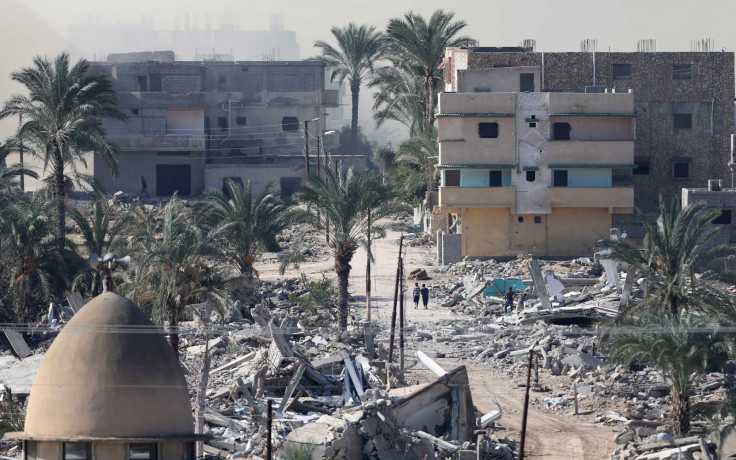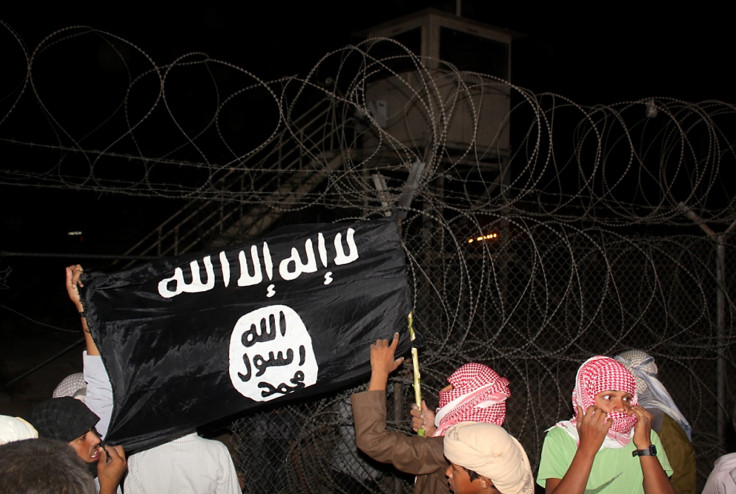Frontline Egypt: Country Braced for Full-Scale War Against Islamic Terrorists After Naval Attack

The problem of militant insurgency is rapidly reaching chronic proportions in Egypt, with experts now warning that the curse of Islamic extremism, which has already torn apart Iraq, Libya, Syria and Yemen, is about to create a "fully-fledged war" across the country.
The experts issued the grave warning in state-run newspaper Al-Ahram, only hours after the army announced a "terrorist attack" on a navy boat in the Mediterranean, which injured five people and left eight others unaccounted for.
The Egyptian military has been fighting Islamic extremists, originally based in the restless Sinai Peninsula, for a decade. However, after the removal of Islamist President Mohamed Morsi last year, and the rapid propagation of jihadist groups such as Isis across the Middle East, attacks have now spread to the capital and several other cities.
This attack on Egypt's navy is considered a marked shift in the tactical approach adopted by the militants. It comes less than three weeks after another attack on an army checkpoint in North Sinai; that incursion left 31 troops dead, making it the most costly single attack on the Egyptian military in decades.
A three-month state of emergency was declared in the area after the attack, and over 1,100 families were relocated to create a buffer zone across the Rafah-Gaza border. The army has regularly announced the killings and arrests of alleged militants, as well as destroying tunnels allegedly used to smuggle weapons.
A new theatre of war?
Remarking on the possible causes behind the militants' shift to naval attacks, military expert Ashraf Sweilam told Al-Ahram that it "could be a strategy to supply weapons to Ansar Beit Al-Maqdis (ABM), Sinai's most powerful militant group, which has likely suffered from a shortage in resources due to the escalation in the army's campaign."
Wednesday's naval assault could also be an effort to transport jihadists to Egypt's coasts for more attacks, Sweilam added.
Earlier this week, ABM swore allegiance to the Islamic State (IS). The group led by Abu Bakr al-Baghdadi has previously called on Egyptian rebels to step up attacks against security forces, further increasing the sense of fear among the general population.
Sweilam also told Al-Ahram that the sea attack should not be surprising, as "the battleground is stretched all over Egyptian land."
"We are in a full-fledged war, and in the war you can expect anything," Sweilam said. "And this is the first time Egypt has faced threats on all its borders, not just the eastern Gaza one."
However, an expert in Islamic Movements, Ahmed Ban, shared another view with Al-Ahram, saying that ABM may have lost control over Sinai and is now "searching for any security soft spots, whether in the western parts of the country or in the Nile valley or Delta.
"The group is seeking any encounter with the security forces to reassure its members and to raise their morale after the grave losses they've sustained in Sinai."

Scattered attacks
Meanwhile, a sequence of other smaller attacks have been taking place nearly daily in Cairo and other cities, the attacks mainly target security posts.
"The scattered explosions nationwide are meant to distract the Egyptian army, and to give the impression that it's incapable of facing the repeated attacks," Sweilam told Al-Ahram.
"It's no big deal to pay a few hundred pounds for someone to carry explosives or to throw a bomb," he added.
Authorities have been continuously blaming the Muslim Brotherhood and its Islamist allies for the growing violence since Morsi's removal in July 2013.
However, there has been little evidence to link the Brotherhood, which was declared a terrorist organisation last year, behind the recent attacks.
© Copyright IBTimes 2025. All rights reserved.



















